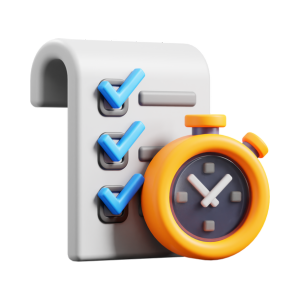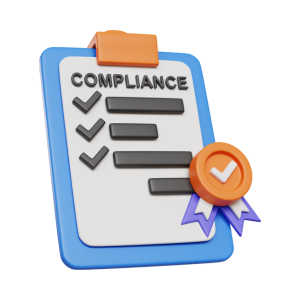Professional Tax Registration
Tax Registration is the process of officially registering your business with the relevant tax authorities, ensuring compliance with various tax laws and regulations. It is a fundamental step for businesses to legally operate, manage tax obligations, and benefit from available tax advantages.
- Legal Compliance
- Business Legitimacy
- Tax Benefits
- Operational Efficiency

Overview of Professional Tax Registration
Professional Tax Registration is a mandatory process in India for individuals and businesses earning professional income. Governed by state governments, this tax applies to professionals such as doctors, lawyers, and accountants, as well as companies employing such professionals. The registration process ensures compliance with state professional tax laws, where employers are responsible for deducting and remitting the tax on behalf of their employees. Upon successful registration, businesses and professionals receive a Professional Tax Registration Certificate (PTRC), confirming their legal compliance. This system streamlines the tax process, helping businesses avoid penalties while also enabling businesses to claim tax deductions and file returns efficiently.
Benefits of Professional Tax Registration
Registering for Professional Tax offers several advantages, both for businesses and individuals. Some of the key benefits include:
- Facilitates Smooth Business Operations: Having a registered PT number ensures that employers can easily deduct and remit the professional tax from employees’ salaries, streamlining payroll management.
- Avoids Penalties: Non-compliance with professional tax laws, such as late payments or non-payment, can result in penalties. Registration ensures that businesses remain compliant and avoid fines.
- Tax Deductions for Employers: Employers can claim professional tax as a business expense while filing tax returns, reducing their taxable income and potentially saving on corporate tax.
- Professional Recognition: For individuals like consultants, doctors, lawyers, and other professionals, PT registration establishes them as legitimate and legally operating within their profession.
- Easy Online Filing: Once registered, paying professional tax and filing returns becomes quick and convenient, reducing the time spent on administrative tasks.
Required Documents
The following documents are required for Professional Tax Registration:
PAN Card:
Proof of identity for individuals and businesses.
Address Proof:
Utility bills, rent agreements, or property tax receipts to verify the business address.
Identity Proof:
Aadhar card, Voter ID, or other government-approved identification for the individual.
Bank Account Information:
Bank account details for the payment process.
Business Registration Certificate (if applicable):
For registered businesses.
Professional License (if applicable):
For regulated professionals like doctors or chartered accountants.
Checklist for Professional Tax Registration
Before starting the registration process, ensure the following steps are completed:
Eligibility Check:
Verify that you meet the eligibility criteria based on your profession, income, and state regulations.
Document Gathering:
Collect all required documents such as PAN, address proof, identity proof, and business-specific documents (e.g., business registration or professional license).
Application Method:
Determine whether you will apply online or offline, depending on your state’s rules.
Fee Payment:
Be prepared to make the necessary registration and professional tax payments as per the state’s requirements.
Receive PTRC:
After successful registration, ensure you receive the Professional Tax Registration Certificate (PTRC), which proves compliance.
Procedure for Professional Tax Registration
Follow these steps for Professional Tax Registration:
- Visit the State Website: Start by visiting the official website of your state’s professional tax department.
- Complete the Application Form: Fill out the application form with accurate information. Double-check the details to avoid delays.
- Upload Documents: Attach the necessary documents, including PAN, address proof, identity proof, business registration certificate, and professional license (if applicable).
- Pay Fees: Make the required payment for the registration fee and professional tax, following the state’s payment procedure.
- Submit the Application: After completing the form, uploading documents, and making the payment, submit the application online or offline, as per the state’s process.
- Wait for PTRC: After submission, the professional tax department will process the application. Upon approval, you will receive your Professional Tax Registration Certificate (PTRC).
Eligibility
Eligibility for Professional Tax Registration is determined by factors such as income, occupation, and state of operation. The key categories include:
- Individual Professionals: Professionals such as doctors, lawyers, chartered accountants, and freelancers who earn professional income are required to register.
- Businesses with Professionals: Companies that employ professionals, such as doctors, lawyers, architects, engineers, and consultants, must register for professional tax.
- Employees: Salaried individuals earning above the state-prescribed minimum threshold (usually Rs. 7,500/month) are liable to pay professional tax.
- Employers: Businesses must deduct PT from their employees’ salaries and remit it to the state government. They must also file returns on behalf of their employees.
- Freelancers and Self-Employed: Independent professionals whose income exceeds the state-specific threshold must register and pay PT.
Get A Free Consultation
FAQ'S
Professional Tax Registration is the process of obtaining a registration to comply with professional tax regulations imposed by state governments. This tax is levied on individuals and businesses based on their professional income and is applicable to various professions, trades, and employment categories.
Professional Tax registration is required for:
- Employees: Individuals earning a salary above a certain threshold.
- Employers: Businesses and organizations with employees.
- Self-Employed Professionals: Individuals practicing as doctors, lawyers, consultants, and other professions.
- Business Owners: Those running a business or trade, depending on local regulations.
Professional Tax Registration ensures compliance with state laws and avoids penalties. It allows for proper tax reporting and payment, helping individuals and businesses fulfill their legal obligations. Registration also contributes to maintaining a legitimate and credible business practice.
Benefits include:
- Legal Compliance: Adheres to state regulations and avoids legal issues.
- Avoiding Penalties: Prevents fines and penalties for non-compliance.
- Access to Services: Allows access to certain government and business services.
- Credibility: Enhances the credibility of your business or profession.
The registration process typically involves:
- Determine Eligibility: Verify if you fall under the category that requires registration based on local laws.
- Gather Documentation: Prepare required documents such as identification proof, address proof, and business details.
- Complete Application: Fill out the registration form available from the state’s tax department or online portal.
- Submit and Verify: Submit the form and documents for verification by the tax authorities.
- Receive Certificate: Once approved, you will receive a Professional Tax Registration Certificate.
Commonly required documents include:
- Proof of Identity: Such as Aadhar card, passport, or driver’s license.
- Proof of Address: Utility bills, lease agreements, or bank statements.
- Business Registration Documents: If applicable, such as company registration or partnership deed.
- Proof of Income: For individuals, documents showing professional income may be required.
Professional Tax payments and filings depend on state regulations. Typically, it may be required:
- Monthly: For businesses or individuals with regular income.
- Quarterly: For periodic payments, depending on the state.
- Annually: For some states, a yearly payment might be applicable.
Failing to register or pay Professional Tax on time can result in:
- Penalties and Fines: Imposed for late payment or non-compliance.
- Interest Charges: On overdue tax amounts.
- Legal Action: Potential legal consequences for continued non-compliance.
Yes, many states offer online registration through their official tax department websites. The online process typically involves filling out a form, submitting required documents, and paying the registration fee electronically. Check with your state’s tax department for specific online registration procedures.
Professional services can assist by:
- Ensuring Compliance: Guiding you through the registration process and ensuring adherence to state laws.
- Document Preparation: Assisting with the gathering and submission of required documents.
- Filing and Payments: Managing timely filing and payments to avoid penalties.
- Advice and Support: Providing expert advice on professional tax regulations and any related queries or issues.








